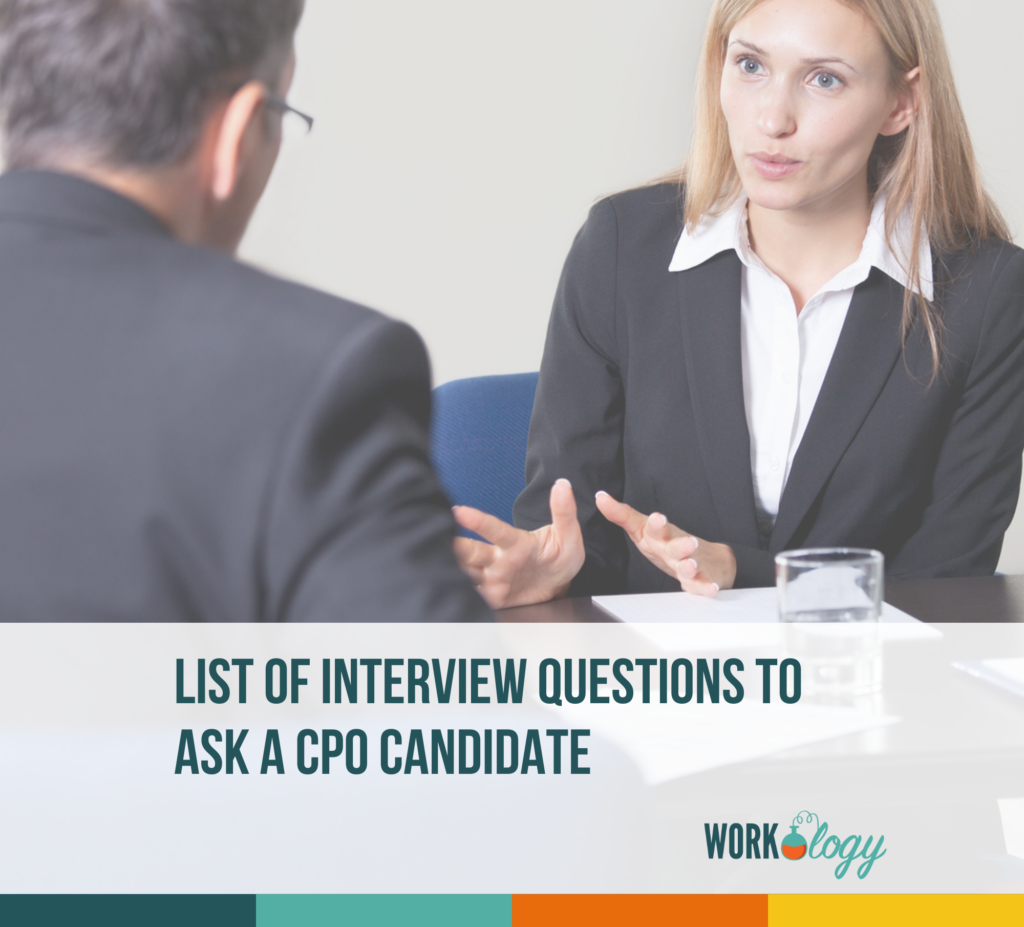Filling the position of Chief People Officer (CPO) is a critical step for any organization, as this role plays a pivotal role in shaping the company’s culture, talent strategy, and overall human resources initiatives. When you’re interviewing for high-level positions in your human resources department like Chief People Officer, it’s important to be able to assess all candidates using the same data (or scoring). This is where structured interviews come in. In a structured interview, questions are determined in advance and consistent. All candidates should have the opportunity to answer the same questions and be allotted the same amount of time so you can evaluate them based on standard criteria.
Before beginning the recruitment process, ensure that the role of the Chief People Officer is well-defined and aligned with your organization’s strategic goals. Clearly outline the responsibilities, expectations, and key performance indicators (KPIs) for the CPO. This will not only help potential candidates understand the role but also aid in evaluating their fit with the company’s needs.
Based on the qualifications you’re looking for, your Chief People Officer interview questions should be structured so that candidates may provide specific information that will distinguish them from the other candidates you’re interviewing for the position. Asking the right questions during the interview is crucial to selecting the right candidates to hire.
What Does a Chief People Officer Do?
The Chief People Officer is always a salaried position. Depending on the size of the organization, the Chief People Officer often reports directly to the CEO or COO of an organization. Depending on the structure and size of the organization, the Chief People Officer works with the executive team to discuss business objectives. They view financial documents and work to understand how the focused programs and services they offer the organization drive revenue. The Chief People Officer works to integrate people into the full scope of business operations evaluating how the impact of human capital benefits the overall organization. This position is heavily focused on engagement, retention, forecasting and learning and development for the organization’s workforce. This is an exempt level position and often a key decision maker at the company.
Below is a list of interview questions for the Chief People Officer to get you started.
Interviewing candidates for the Chief People Officer (CPO) position requires a thoughtful approach to assess their strategic leadership, HR expertise, cultural alignment, and ability to drive positive organizational change. Here are some key questions to ask during the interview process:
Strategic Leadership and Vision:
Can you share your vision for the role of Chief People Officer within our organization? How would you align HR strategies with our business goals?
How have you successfully influenced senior leadership to adopt and implement HR strategies that support organizational growth?
Cultural Fit and Change Management:
How do you plan to assess our current organizational culture, and what steps would you take to drive positive cultural change?
Can you describe an instance when you led a successful organizational change initiative? What were the challenges, and how did you address them?
Talent Acquisition and Development:
What innovative strategies have you used to attract, hire, and retain top talent? How do you ensure diversity and inclusion in recruitment?
How do you approach talent development and succession planning to ensure a strong leadership pipeline?
Employee Engagement and Well-being:
What methods do you use to measure employee engagement, and how do you address any engagement challenges that arise?
How would you promote employee well-being and work-life balance within our organization?
HR Technology and Data-Driven Decision-Making:
How do you leverage HR technology and data analytics to inform strategic HR decisions and drive efficiency?
Can you provide an example of how you used data to improve HR processes and outcomes in a previous role?
Conflict Resolution and Employee Relations:
Describe a challenging employee relations situation you’ve encountered. How did you handle it, and what was the outcome?
How would you address conflicts between employees or between employees and management to maintain a positive work environment?
Leadership and Team Development:
How do you foster leadership development and mentorship within the HR team? Can you provide an example of someone you’ve mentored?
How do you ensure collaboration between HR and other departments to drive organizational success?
Ethical and Compliance Leadership:
How do you ensure HR practices are aligned with ethical standards and legal requirements?
Can you share an experience where you navigated complex compliance issues?
Communication and Employee Relations:
How do you approach communicating major organizational changes to employees to ensure transparency and minimize disruption?
Can you provide an example of how you’ve effectively communicated challenging news or changes to employees?
Long-Term Impact and Value Creation:
How would you measure the success of your tenure as Chief People Officer in our organization after a few years?
What strategies would you implement to continuously add value and ensure HR’s impact on the organization’s success?
Remember to tailor these questions to your organization’s specific context and challenges. The goal is to assess not only the candidate’s qualifications but also their fit with your company’s culture and their ability to drive meaningful change as a strategic leader in the Chief People Officer role.
Once the interviews for the job are completed, it’s up to you and your team to decide on which of your top prospects is the one that you are going to offer the job to. The key when interviewing and selecting Chief People Officer candidates is to be sure of the job requirements and most important skills and abilities to ensure you are selecting the most qualified and capable person for the human resources assistant job you have an opening for.
Get the complete list of all HR and Recruiting job titles, descriptions, salary ranges and templates right here.








